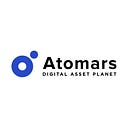General Overview of Augur (REP)

What is Augur?
Augur is a decentralized oracle and peer to peer protocol for prediction markets. Augur is free, public, open source software, portions of which are licensed under the General Public License (GPL) and portions of which are licensed under the Massachusetts Institute of Technology (MIT) license. Augur is a set of smart contracts written in Solidity that can be deployed to the Ethereum blockchain.
Augur is a protocol, freely available for anyone to use however they please. Augur is accessible through a desktop client app, similar to interacting with an Ethereum or Bitcoin node. Users of the Augur protocol must themselves ensure that the actions they are performing are compliant with the laws in all applicable jurisdictions and must acknowledge that others’ use of the Augur protocol may not be compliant. Users of the Augur protocol do so at their own risk.
Augur is also the first major decentralized application (Dapp) developed using Ethereum , and represents a major proof of concept for this underlying technology. Decentralization ensures that Augur cannot be censored by governments that deem prediction markets as gambling, whilst ensuring the sustainability of the application. This decentralized nature ensures honesty in reporting the outcome of events, using crowd wisdom to cancel out individual frauds.
Augur History
The Augur project started in late 2014 as one of the early solutions build around the Ethereum’s technology. The beta version of the protocol was launched in 2016, with the main net going live in July 2018. Two masterminds behind the project were Joey Krug and Jack Peterson, both with much experience under their belt when it comes to blockchain tech and Bitcoin.
How Does Augur Work?
Augur markets follow a four-stage progression: creation, trading, reporting, and settlement. Anyone can create a market based on any real-world event. Trading begins immediately after market creation, and all users are free to trade on any market. After the event on which the market is based has occurred, the outcome of the event is determined by Augur’s oracle. Once the outcome is determined, traders can close out their positions and collect their payouts.
Reputation
Augur has a native token, Reputation (REP). REP is needed by market creators and by reporters when they report on the outcome of markets created on the Augur platform. Reporters report on a market by staking their REP on one of the market’s possible outcomes. By doing this, the reporter declares that the outcome on which the stake was placed matches the real-world outcome of the market’s underlying event. The consensus of a market’s reporters is considered the “truth” for the purpose of determining the market’s outcome. If a reporter’s report of a market’s outcome does not match the consensus reached by the other reporters, Augur redistributes the REP staked on the non-consensus outcome by this reporter to the reporters that reported with the consensus.
By owning REP, and participating in the accurate reporting on the outcomes of events, token holders are entitled to a portion of the fees on the platform. Each staked REP token entitles its holder to an equal portion of Augur’s market fees. The more REP a reporter owns, and reports correctly with, the more fees they will earn for their work in keeping the platform secure.
In other words, Reputation tokens are gained and lost depending on the reliability of users votes with the consensus. The Augur Team released an infographic to explain how the Reputation tokens work.

Although REP plays a central role in Augur’s operations, it is not used to trade in Augur’s markets. Traders will never need to own or use REP, as they are not required to participate in the reporting process.
What are the benefits of Augur?
REP Technology
- The Augur network is based upon the Ethereum blockchain and works on the Proof of Stake approach. The REP coin being an ERC20 token is supported by all wallets supporting Ethereum by design.
- Augur uses Ethereum’s smart contracts to provide live, peer-to-peer, decentralised, secure, and robust betting platforms for users.
- Any user can create a new prediction event, based on whatever they want, with start and end times, a designated reporter, a source for resolution of the prediction, and a settlement fee.
- After the market has been created, traders can immediately purchase negative or positive shares regarding the outcome of the prediction using reputation or REP coins, called staking in Augur’s terminology.
- Augur markets follow the “Wisdom of the Crowd” principle. It is the theory that if incentivized, crowdsourced predictions will have a greater chance of being accurate.
- If the event becomes true, or takes place, buyers of the positive shares will receive $1 USD for each share bought, while shareholders of the negative shares will lose their staked REP coins.
- A user can also sell their shares before the completion of an event is they wish to do so.
Key Features
- Freedom of custom predictions market creation — Because the network is not regulated by any central body, users can create any event they wish, with bets being placed on things ranging from whether it will rain at a particular place, to predicting who the winners of the FIFA World Cup will be.
- Based on an established network — Since REP is an ERC20 compliant token, the Augur network is fully backed by the Ethereum network, which means that it has robust and secure support for features such as smart contracts, which are used to provide the functionalities Augur offers
- Proof of Stake Implementation — Being an Ethereum token, Augur uses the PoS approach which results in a leaner and faster blockchain, which is significantly less resource hungry and environmentally detrimental than a similarly sized PoW network.
